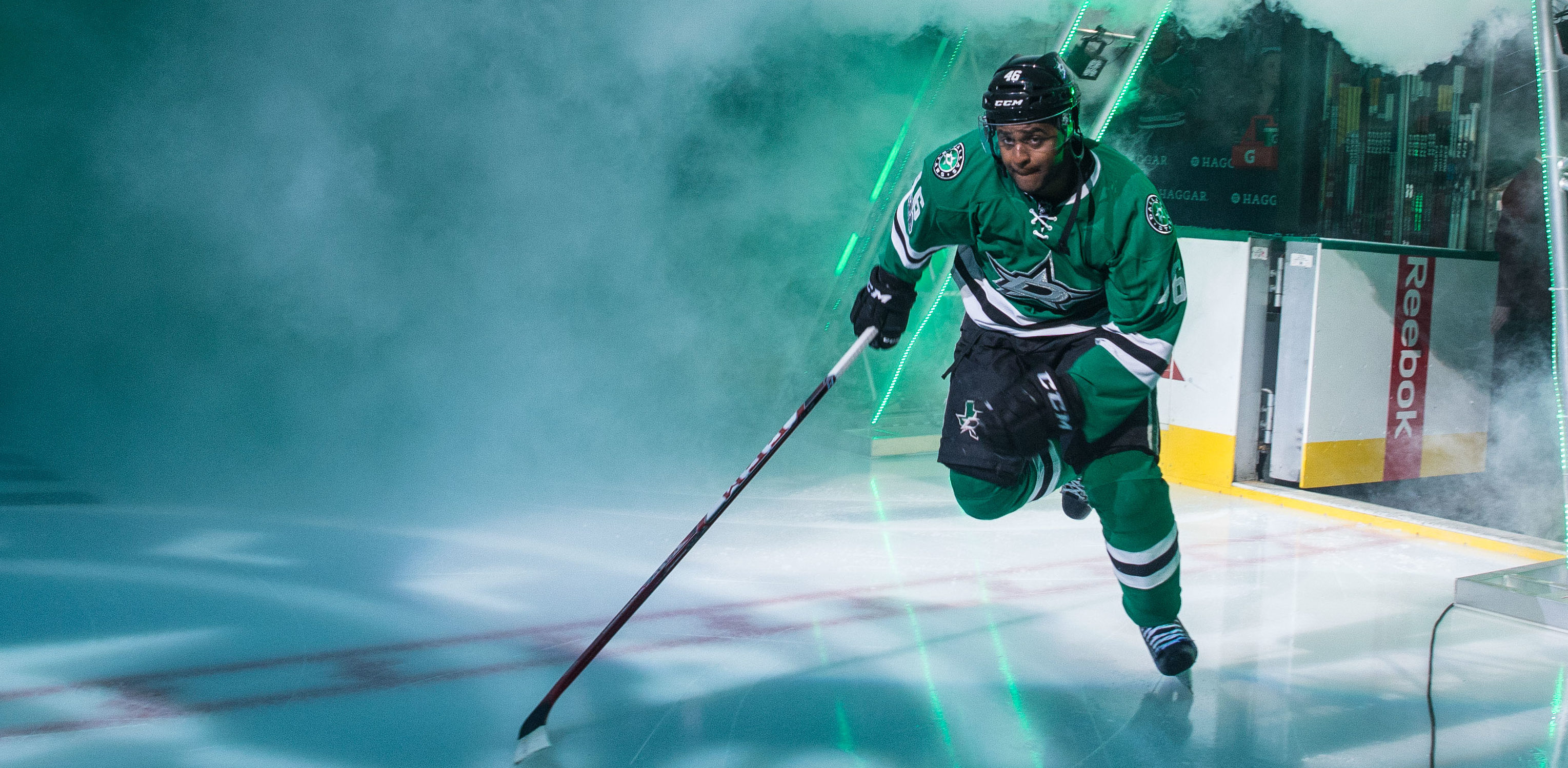Throughout his hockey career Gemel Smith has developed a thick skin.
The 23-year-old Dallas Stars forward tends to ignore outside distractions, doesn’t let the little things bother him, and has found peace focussing solely on the parts of his game that he can control.
It’s an essential approach for Smith, who needed thick skin growing up with a different skin color than most of the hockey world.
“Where I grew up you had to be strong mentally, or it would break you real fast,” Smith said. “I’ve been through that stuff, even when playing in the OHL. To me I just block it out, none of it really bothers me. I think of it like just words, that stuff doesn’t effect me.”
Dealing with racism is an unfortunate reality for Smith, who is one of around 30 black players in the NHL.
It’s an issue that’s taken center stage recently after Tampa Bay Lightning winger J.T. Brown became the first hockey player to join the scores of NFL and NBA players protesting racial injustice during the Star-Spangled Banner. After raising his fist during the national anthem, Brown’s twitter account was bombarded with death threats and racist remarks.
Smith has heard similar things on the ice. He said NHL players are generally respectful when it comes to race, but it still happens. Smith also said that he and his brother Givani, a Detroit Red Wings prospect in the OHL, both were frequent targets of racist remarks when playing in the OHL.
“Definitely happened more when I was younger and in the OHL, I think it was a maturity thing. The fact that it happens at that age is a good thing, it teaches guys how to cope,” Smith said. “I had some really high-end players say some stuff to me, I’m not going to say any names, and to be honest I just laugh now. None of it really bothers me.”
Smith credits his upbringing with his hardened attitude toward racism. His father and mother, Gary and Nickey Smith, were Jamaican immigrants in Toronto. They worked hard to support four kids — Gary as a steelworker and Nickey as a nurse — and didn’t have time to worry about what others thought about them.
“They wouldn’t tell me everything, but when they came to Canada they had a lot of that going on and they came from a really rough area,” Smith said. “And I think it did a really good job of molding us to be mentally tough, life is tough. You have to be tougher sometimes.”
Smith’s father had a saying that he ended up passing down to his son.
“My dad used to say to me, whether I got hurt or somebody did something to me. He would say, ‘it’s life,’ and move on,” Smith said. “So that’s how I go about things, if something bad happens to me I say, ‘it’s life,’ and I don’t let it bother me.”
While Smith was always in the minority at the rink, he said discovering there was a black hockey community growing up gave him a network of allies that he could rely on.
“My first triple-A team when I first started taking hockey serious, my coach was black and there were four other black players on my team. It kind of helped us kind of get through at first,” Smith said. “I know stuff like that is going to come up as long as I live, and the best thing to is don’t break. You can bend, but don’t break.”

Leave a Reply
You must be logged in to post a comment.